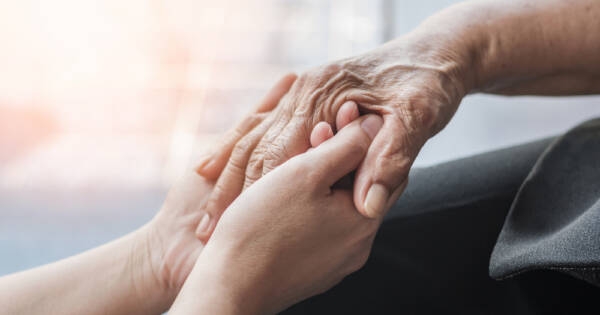Breast cancer symptoms can be subtle, especially in older adults, who might miss early warning signs. Recognizing these symptoms early can make a major difference in treatment success. Fortunately, you can explore the early signs of metastatic breast cancer, how seniors can detect hidden symptoms, and how Kisqali, a targeted treatment, can help manage this condition effectively.
Earliest Signs of Metastatic Breast Cancer
Metastatic breast cancer, or advanced-stage cancer, often spreads beyond the breast and nearby lymph nodes. This stage brings on different symptoms that can sometimes be mistaken for other health issues. Seniors, who may already face various age-related health challenges, need to watch for specific signs that might signal metastatic breast cancer.
Common signs include unexpected weight loss, persistent fatigue, and ongoing pain in bones or joints. These may seem normal with aging, but they can also be early warnings of cancer spreading to other parts of the body, like the bones, liver, or lungs. Additional symptoms could involve constant headaches or difficulty breathing. If these symptoms are new, persistent, or worsening, it’s best to consult a healthcare provider promptly.
Spotting Subtle Breast Cancer Symptoms
Breast cancer doesn’t always cause noticeable lumps or bumps in its early stages. For seniors, who might expect major changes if cancer is present, this can lead to delayed detection. It’s essential to recognize subtle, lesser-known symptoms that may seem unrelated to breast cancer but are worth discussing with a doctor.
For instance, breast cancer can cause slight skin changes around the breast area. Seniors should check for unusual redness, warmth, or dimpling on the skin, which might resemble an orange peel texture. Nipple changes, such as inversion or discharge, could also indicate something isn’t right, even if there’s no pain or swelling.
Another often-overlooked sign is swelling in the arms or lymph nodes under the arms. This can happen if breast cancer cells spread to nearby lymph nodes. Seniors should note any unusual swelling, no matter how minor, and mention it during regular medical check-ups. Consistent monitoring of these subtle signs allows for a better chance of catching breast cancer in its earlier, more treatable stages.
Kisqali Treatments for Breast Cancer: How It Works and What to Expect
Kisqali (ribociclib) is a targeted therapy developed specifically for hormone-receptor-positive, HER2-negative breast cancer, a common type in postmenopausal women. This treatment works by blocking certain proteins in cancer cells, slowing their growth and spread. Unlike traditional chemotherapy, Kisqali focuses on cancer cells, aiming to minimize impact on healthy cells.
Kisqali is usually prescribed in combination with hormone therapy, which targets hormone-sensitive cancer cells that use estrogen to grow. This dual approach can improve outcomes for many women by helping reduce tumor growth or slowing down its spread. Patients typically take Kisqali in cycles — three weeks on, followed by one week off — allowing the body to recover and prepare for the next round.
Seniors using Kisqali should be prepared for possible side effects, as with any cancer treatment. Common ones include nausea, fatigue, and loss of appetite. These side effects vary in intensity and can often be managed with the help of a healthcare provider. Regular blood tests are essential during treatment to monitor any potential impact on liver function or blood cell counts. Despite these side effects, Kisqali has become a valuable option in the fight against metastatic breast cancer, offering a more targeted approach that often fits well into seniors’ healthcare plans.
The Importance of Regular Health Checks for Seniors
For older adults, regular health screenings and check-ups are vital in catching potential issues early. Many seniors might hesitate to see a doctor regularly, especially if they feel well. However, early detection of breast cancer can dramatically improve treatment options and effectiveness. Yearly mammograms, even after age 70, can help detect any small changes that might otherwise go unnoticed.
Additionally, routine blood tests and physical exams allow doctors to monitor overall health and identify warning signs related to breast cancer, including bone density checks, which are especially important for those at risk of bone metastasis. Seniors should speak openly with their healthcare providers about any new or unusual symptoms, no matter how minor they may seem.
Recognizing When to Seek Medical Advice
Understanding the difference between typical aging symptoms and potential warning signs of breast cancer is essential. Seniors should feel comfortable speaking to their doctor about any unusual pain, changes in appetite, or energy levels, as these can sometimes indicate cancer-related issues rather than just age-related changes.
Being proactive and informed helps reduce risks and improves early detection. If a loved one notices unusual symptoms, it’s important to encourage a visit to the doctor, as early evaluation and treatment can lead to better outcomes.
Learn More Today
Early detection of breast cancer, especially metastatic cases, can have a significant impact on treatment outcomes for seniors. By watching for subtle changes and understanding treatment options like Kisqali, older adults can take control of their health.
Regular check-ups, careful attention to new symptoms, and open communication with healthcare providers are crucial steps for seniors in their cancer care journey. Staying informed helps seniors live healthier lives, even while facing health challenges like breast cancer.




